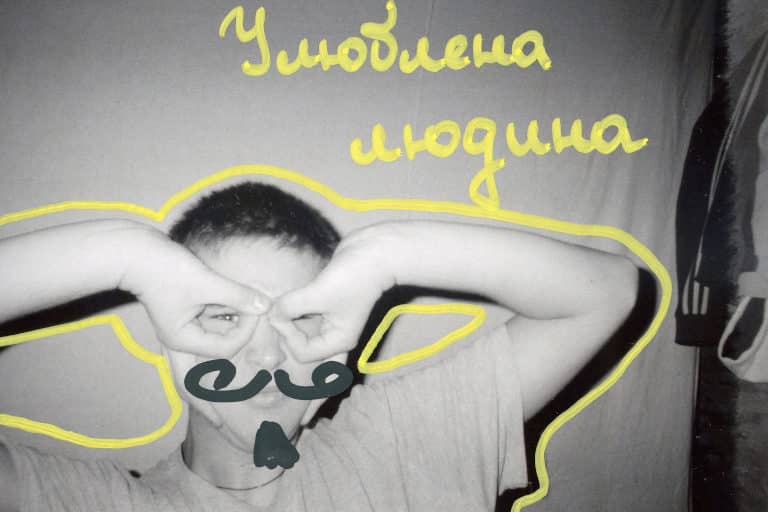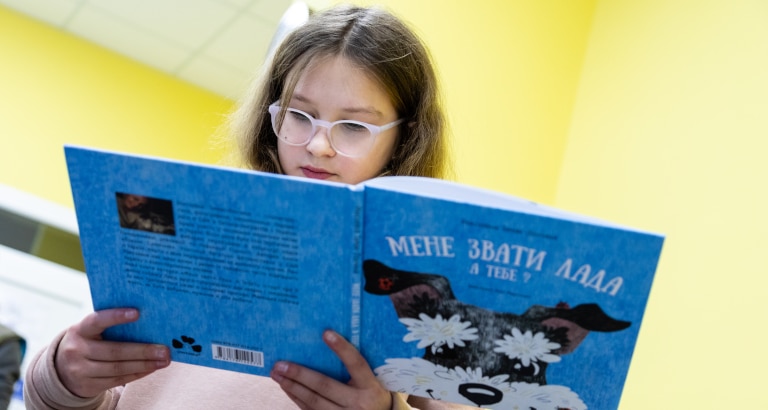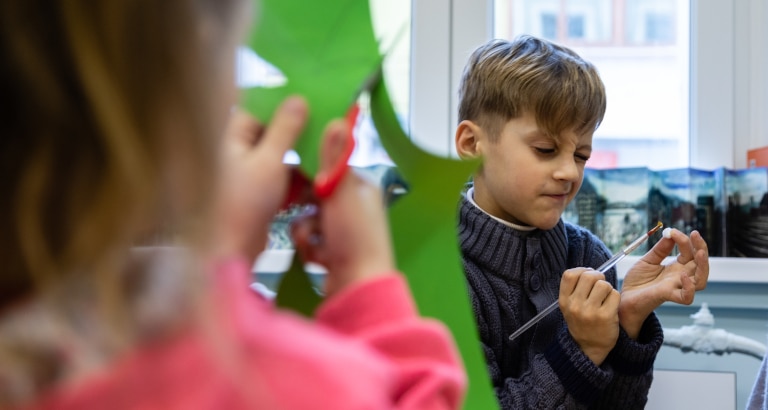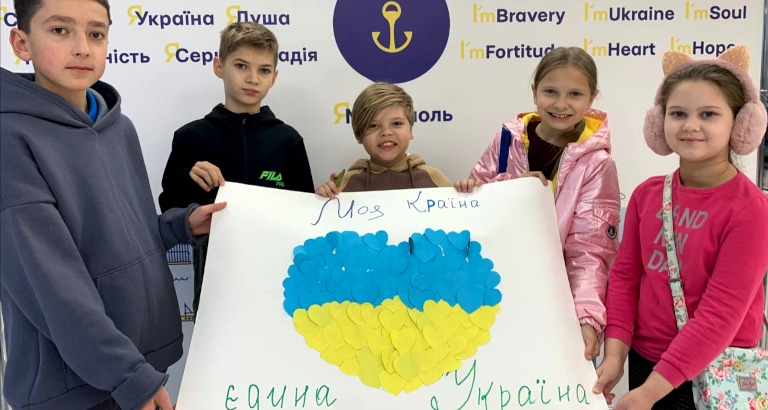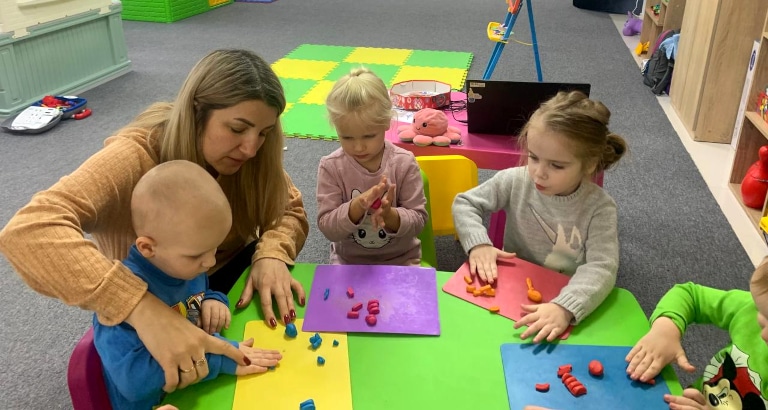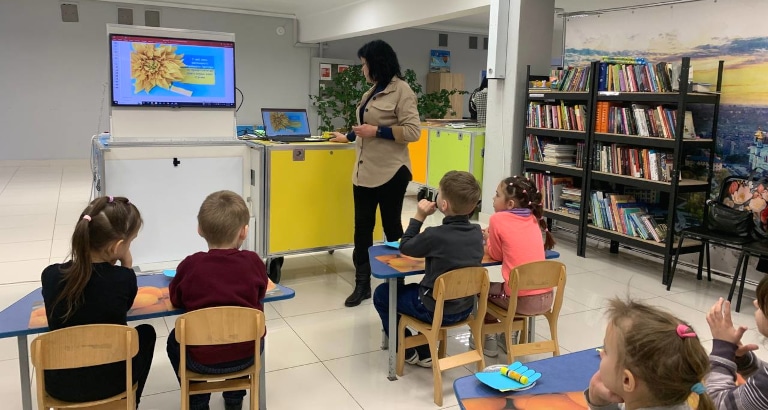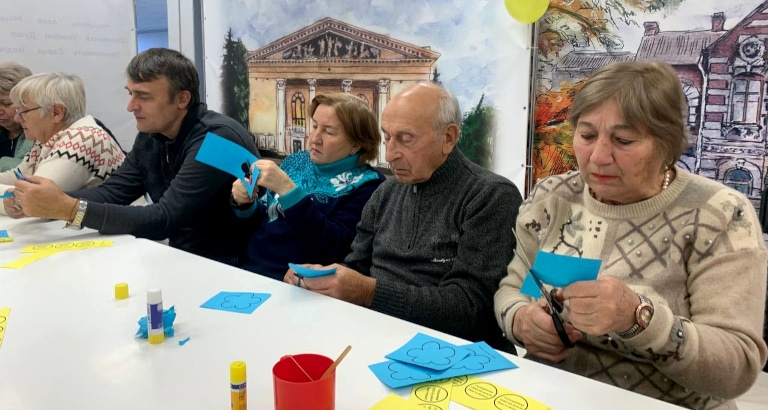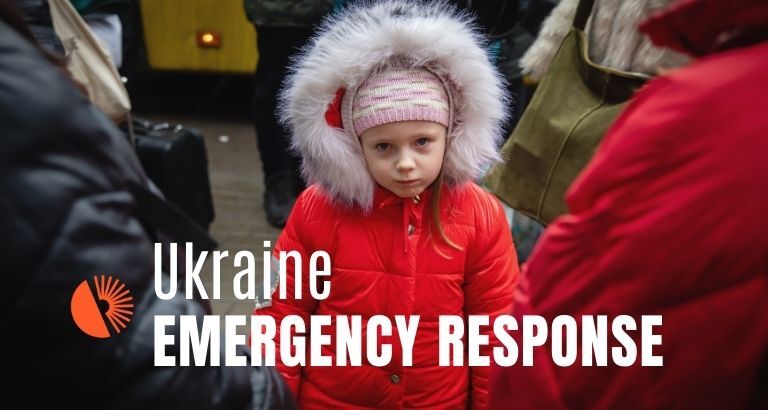In the Kharkhiv region of northeastern Ukraine, the village of Kapytolivka was occupied by Russia for around a year. In the fall of 2023, BSF installed a micro-library and an Ideas Cube, a digital library that provides access to thousands of educational and cultural materials without the need for an internet connection. Yuliia Kakulia-Danyliuk, a librarian in Kapytolivka, tells us:
“Many buildings were almost completely destroyed during the occupation. The library was certainly not spared. During this period, most children could not attend school, so the library staff regularly organized activities for preschool-age children in the less damaged part of the building.
Since the village was liberated by the Ukrainians, some repair work has been done and we have continued to offer enrichment activities thanks to BSF’s educational tools!” Yuliia Kakulia-Danyliuk.
Every day, “several generations gather there” to enjoy novels, comic books, and children’s books selected by our teams in Ukrainian and English, to play board games, to draw, to watch movies, or simply to rest. “The library has now become one of the major centers of the village—a symbol of unity in a time of conflict,” she continues.
